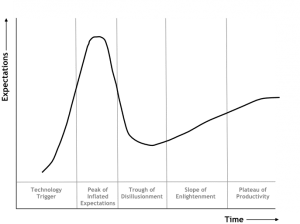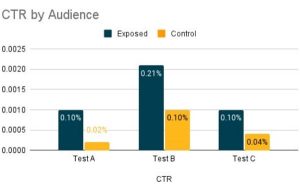By Bill Faeth, Published October 23, 2014
Google’s Long-Awaited Penguin Update Finally Rolls Out; So How Do You Avoid Being Impacted?
 Over the weekend, Google confirmed the release of Penguin 3.0, an update that SEOs have been anticipating for more than a year.
Over the weekend, Google confirmed the release of Penguin 3.0, an update that SEOs have been anticipating for more than a year.
In fact, Barry Schwartz dubbed this update “one of the most anticipated…in Google’s history” in an article on Search Engine Land.
Though not actually an update to signals or a change to its algorithm, Penguin is more of a refresh, a slightly disappointing announcement to those SEOs who have been expectantly waiting for a major update for 12 long months. According to Google, Penguin as a “refresh” is a re-release of its algorithm to release sites that have fixed previous errors and demote sites that were not previously affected by algorithm changes.
What Is Penguin 3.0?
The Penguin algorithm is designed to filter spam and promote positive link-building techniques, as opposed to those sites that purchase links or use link networks as a means of improving search engine results. Since its inception in April 2012 with Penguin 1.0, Google has aimed to identify and demote sites with spammy or otherwise bad links. Penguin analyzes at a site’s backlink profile and may demote a site it deems to have a profile.
A timeline of previous Penguin releases, courtesy of Search Engine Land:

Who Does Penguin 3.0 Affect?
Unlike the recent updates to its Panda algorithm, which grades content and language, Penguin does not take language into account. Because it primarily reviews links, which are not language specific, Penguin is not limited to rollout by country as has been the case with previous updates. The refresh has been rolling out worldwide since Saturday morning.
Thus far, it is reported that Penguin 3.0 is affecting less than 1 percent of English queries. While no clear results on the impact of Penguin 3.0 are available, most sites are seeing no change. However, some initial reports have shown either sharp increases or sharp decreases caused by Penguin.
What To Do If Penguin 3.0 Affects Your Site?
It may be difficult for you to determine right away if you have been hit by Penguin 3.0. You may not see an update or impact immediately. However, if you have viable links and high-quality content, your chances of escaping impact are good.
As Kelsey Jones, Managing Editor over at Search Engine Journal said, “Amazing content is Google update-proof.” Instead of trying to outsmart the algorithm updates, continue to focus on creating valuable content for your readers.
If you do think you are susceptible to the Penguin 3.0 updates, here are a few steps you can take to protect your site:
- Remove exact match and keyword-rich anchor text Penguin targets links. Therefore, anchor text links are vulnerable to being demoted by Penguin. At one time, anchor text links that contained short- and longtail keyword phrases were applauded. Now, these are not only losing clout but are being demoted as well. To protect yourself against Penguin, avoid optimizing anchor text at all.
- Control backlinks to your site Again, because Penguin is focused on maintaining the integrity of links, it is critical that the backlinks to your site are from relevant and reputable places. If you are able to control who is linking to your site, only allow backlinks from sites with equal or higher domain authority than your own. This will add value to your site and reduce the amount of spam.
- Be wary of guest blogging networks Google has been working to demote sites with content of little value. With the recent Panda update, sites using content farms are penalized. With Penguin, the value of content is protected by disavowing links from guest blogging networks, such as MyGuestBlog. If you are using these types of networks, remove links to these sites within your content or add nofollow links to control link quality.
- Always audit your content The primary way to ensure your site can escape the ever-changing updates to Google’s preferences is to continuously audit your existing site content. Auditing your content for value, as well as monitoring blog posts for spammy comments and removing spam promptly, will help you remain cognizant of your website’s performance in light of algorithm updates, refreshes and new releases.
As with most Google updates, it may take some time to realize the real impact of Penguin 3.0. For now, monitoring your site’s performance and adjusting accordingly will help keep you ahead of the game in terms of search engine rankings. And while you may or may not see specific results related to Penguin by auditing your content, you will be doing yourself and your customers a favor by continuing to provide rich, high-quality content that is valuable to your readers. And, ultimately, that’s what it should be about anyway.
Social Articles | Business 2 Community
(461)
Report Post






